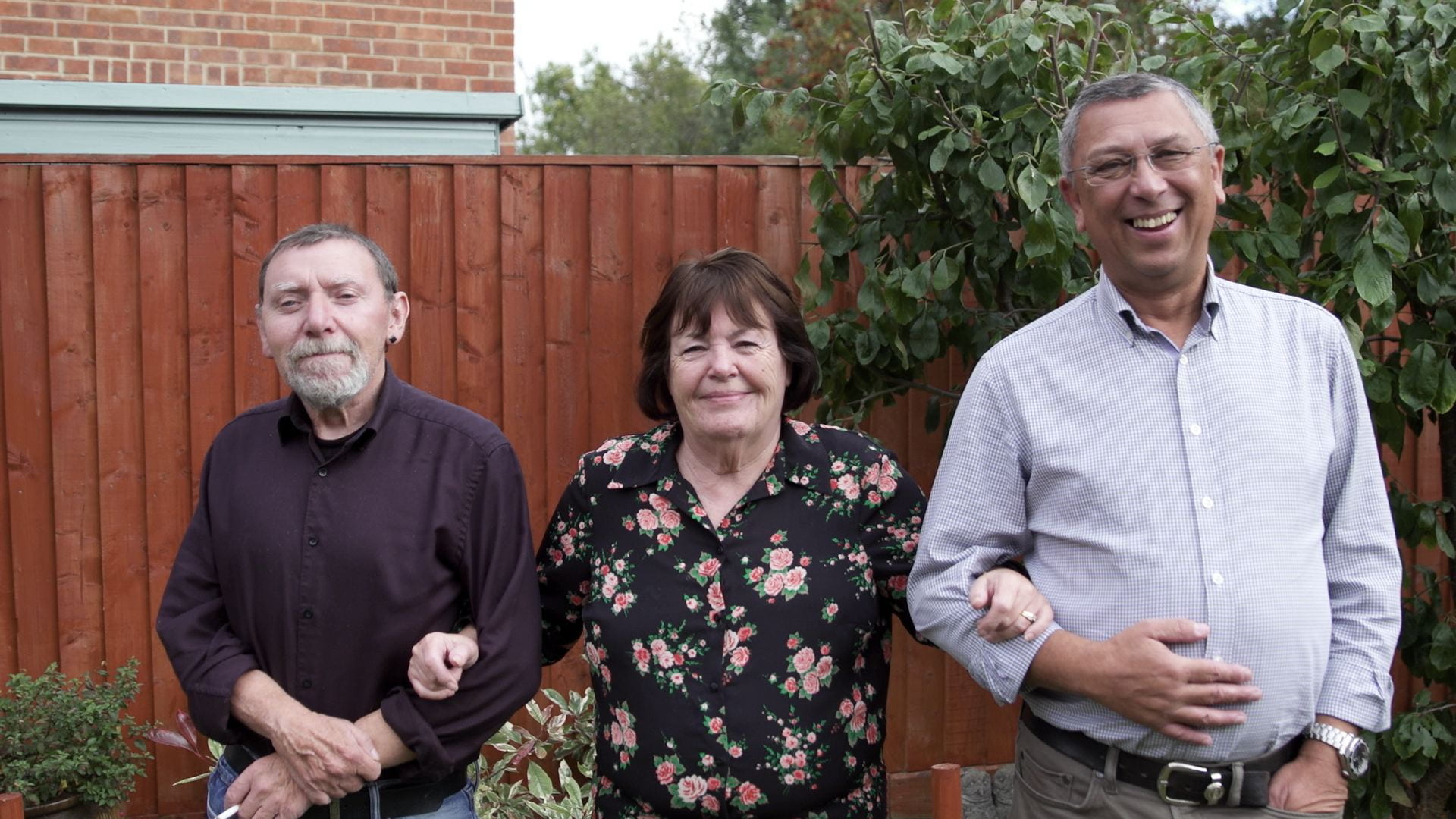Professor Val Williams explores the use of Conversation Analysis to improve communication in dementia settings.

Living with dementia is not a prison sentence, and sensitively conducted social research can help us all to develop more confidence in supporting people to live positive lives after a dementia diagnosis. This ESRC funded research carried out at the School for Policy Studies from 2015-18 was about communication – not the communication skills or deficits of people living with dementia, but the skills of their communication partners. This blog therefore raises the question: ‘Can the skills to communicate well in dementia settings be learnt?’ and reflects on process of creating the 5 co-produced dementia communication training videos being released this week.
In the light of rapid increases in dementia, in the UK and elsewhere, it is generally assumed that research is urgently needed which helps us better understand how to prevent and to treat the condition. While that remains true, it is also important to listen to the voices of people living with dementia, and to look at ways that could improve their everyday lives. In one of the projects in the ‘Getting Things Changed’ programme, members of the ‘Forget-me-Not’ group in Swindon co-produced research with Joe Webb and Val Williams. That means they were actively involved, in advising, in analysing, and pushing the research in directions they felt were important. They felt their lives were enhanced by talking with other people, by getting to know new friends in peer support groups, and by improving the attitudes and skills of all those around them. What they really wanted was to be in control of their own decisions as long as they could and to enjoy their lives and new-found identities. As one of the research group, Sandie Read, says:
“Everyone will tell you the same thing. You’re diagnosed, and then it’s ‘You’ve got dementia. Go home and we’ll see you next month’. What we need is for someone, like a counsellor or someone else with dementia, to tell us at that point ‘Life isn’t over’. You can go on for ten or fifteen years. And you’re not told, you’re just left. And I thought, tomorrow my day had come. The fear and the anxiety sets in, and then the depression sets in, doesn’t it? I think when you’re diagnosed, you should be given a book. And on the front of the book, in big letters, it should say: ‘Don’t panic’.”
The five communication training videos launched this week are all led by members of the Forget-me-Not research group, who appear on screen – both speaking for themselves, and acting out roles based on data we collected during the research. Following the tenets of Conversation Analysis methods (Sidnell and Stivers, 2014), we were interested in the fine-grained detail of the interactions which go on between people with dementia and the other people they meet in their daily lives. Many would consider Conversation Analysis a technical and inaccessible method, but the basic ideas about interaction were, for the Forget-me-Not members, the bread-and-butter of their everyday experience. As we filmed what was happening in the dementia groups where we had obtained consent, Roy, Sandie and Harry helped us make sense of the data from their point of view.
One early example of this can be witnessed in the training video ‘Talking About the Past’. Harry and Roy understand the issues faced by people in their position, who may not easily recall details of their own past life: “When we do our life story now, and people say to us, you know, ‘How did it happen?’, often, I think, are we saying it how it happened? Because I think we are now at the – we can’t remember it all. It’s – and are we saying how it happened, or are we just filling in the gaps? Because I often think about that, you know. Is it a different story than what I said before, because I can’t always remember. Every time I do my life story, it starts off and comes out differently each time.” But when they saw some examples of people being asked about their past in dementia activity group settings, their focus was not just on the person with dementia, but on the way the conversation was conducted. They felt that the person with dementia could easily feel as if they were being interrogated. Questions were asked which seemed meaningless, their answers were never adequate, and the support workers easily slipped into the role of teacher – praising them for ‘good answers’ or for knowing things which the ‘teacher’ already knew.
We all do this type of thing. It is part of the array of interactional resources which we draw on in ordinary conversation all the time, and when someone is seen to be having difficulty in responding, we tend to probe, to prompt them, or even to cross-question them. We also mostly have experience of conversations in which we ourselves get cut out, or where our contributions do not appear to be valued. Supporters in dementia groups do a fantastic job, and have more experience of managing these situations than most of us. So what can our research offer?
We wanted to go further than just providing ‘tips for talk’: there are already resources and training materials which for instance urge dementia supporters to ‘be patient’, ‘listen’, ‘allow waiting time’. But we could see from our data that so much depends on what has just gone before: Conversation Analysis is based on this idea of sequencing. Every remark someone makes reveals how they have interpreted the previous comment or question, and a neat example of this principle happened in our data when a person living with dementia was shown a mug from a Memory Box, and asked the seemingly open question ‘What do you think of that?’; he eventually came out with ‘What do you mean, think?’ Harry and the others in the Forget-me-Not group suggested that these types of questions simply do not work in these situations. It is far more effective to remind someone directly of something they have said, or to mention a fact or situation which might bring back their memory of the past. In fact, the group members could demonstrate how they would do this themselves, in their own group, where they know each other so well as friends. And all of these insights are incorporated into the first of the training videos, ‘Talking About the Past’, as well as being reflected in an article we wrote for a Discourse journal (Williams V., Webb J., Dowling S., Gall M.. (2018). Direct and indirect ways of managing epistemic asymmetries when eliciting memories. Discourse Studies, 21 (2), pp. 199–215.
Our training materials and research are featured this month in a piece published by Joe Webb in the Journal of Dementia Care, and we know that practitioners and trainers are keen to use the videos with all those who communicate regularly with people with dementia. We are very grateful to the practitioners and managers who helped us shape our material into videos which they would find useful for training. Above all, the videos are there as a resource, to get people thinking and reflecting on their own interactions, and to try out something new. As Joe Webb comments, ‘the materials we have produced are a collaboration, moving past traditional approaches to Conversation Analysis by incorporating the views, expertise and lived experience of the Forget-me-Not co researchers into understanding more about how everyday communication works. They are not intended as a prescriptive ‘one size fits all’ approach, but to get the viewer to reflect on how these common, everyday situations come up in interactions, and how they would deal with them. Becoming aware and attuned to the fine-grained way talk is produced is a great way of potentially improving practice. We are hugely indebted to the fantastic staff and participants who shared their skills with us’.
We maintain therefore that Conversation Analysis is not just an ‘academic exercise’ to untangle the rules and conventions of ordinary interaction. It can be a useful tool, providing evidence to help us analyse what is happening in dementia conversations, and in helping us to change things for the better. And nowhere is this more effective than via the direct voice of those who have lived experience of dementia. As Roy James, a Forget-me-Not member, comments on the initial recruitment video for our project:
“It does help to talk to people. That’s what this research is about. Do you have somebody to listen to you? If you don’t, find someone who will listen to you, just talk to them. Think of the other people you’re helping. You might not know the other people, you might not even meet them. But this research, down the line, could give a whole new aspect to someone’s life.”



